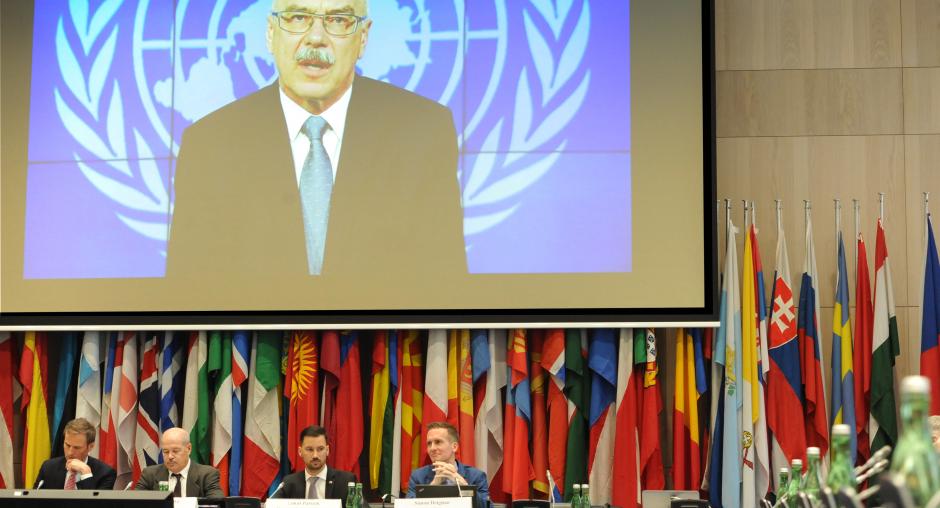Using passenger data exchange systems to address risks posed by returning foreign terrorist fighters explored at OSCE-UNOCT Seminar in Vienna

VIENNA, 1 November 2019 - More than 170 experts from OSCE participating States and the Partners for Co-operation gathered in Vienna on 31 October and 1 November 2019 for the Third OSCE-wide Seminar on Passenger Data Exchange. The event, which this year focuses on how to counter the risks posed by returned foreign terrorist fighters, was organized by the OSCE Transnational Threats Department’s Border Security and Management Unit and the United Nations Office of Counter-Terrorism (UNOCT).
The experts explored how to better support States in implementing United Nations Security Council Resolution 2396 and to help them identify needs for technical assistance.
United Nations Security Council Resolution 2396 focuses on preventing the return of foreign terrorist fighters (FTFs) by mandating States to strengthen border security through the establishment, among other measures, of passenger data exchange systems and sharing the information “through bilateral and multilateral mechanisms, in compliance with domestic and international human rights law.” In particular, the Resolution mandates all States to collect both Advance Passenger Information (API) and Passenger Name Record (PNR) data. The UN has launched a Countering Terrorist Travel Programme in order to support States in implementing these commitments.
“United Nations Security Council Resolutions 2178, 2396 and 2482 stress the need to strengthen national detention capacities using travel information,” said Under-Secretary-General and Head of the UNOCT Vladimir Voronkov in a video message to all Seminar participants “Rest assured, Member States are not alone in addressing the threat of terrorist travel. The United Nations through an all-of-UN approach and key regional and international organizations, like the OSCE, will be there for you and continue to collaborate with UNOCT,” he added.
Paul Bekkers, Director of the Office of the OSCE Secretary General, said: “Our goal is to help you, the OSCE participating States, to implement this Resolution, and to turn these promises into action. The UN Security Council mandated the collection of Advance Passenger Information more than five years ago. However, still less than half of OSCE participating States are collecting API data. This means that known terrorists and organized criminals may be crossing our borders without detection.”
In his opening address, the Chair’s Special Representative of the Slovak OSCE Chairmanship 2019, State Secretary of Slovakia’s Foreign Ministry, Lukáš Parízek stressed the need for effective multilateral co-operation in passenger data exchange.
“We must think beyond the national levels for solutions. As the OSCE Chair, it is our role to promote dialogue and co-operation when and where it is most needed. In order to have the most efficient and effective border security management, we need real information sharing. We need to bring together countries already using passenger data exchange systems and those who are in the developing phase,” he said.
Experts from participating States and international organizations delivered presentations on the importance of having the proper legislation in place and respecting human rights, including the right to privacy, when dealing with passenger data. They highlighted available technical and financial support in implementing these systems. The participants also discussed the benefits of engaging with airlines from a very early stage and looked at how passenger data can be used for analyzing and profiling, without basing it “on any discriminatory ground prohibited by international law,” as Security Council 2396 specifies. Key IT service providers presented alternate API/PNR solutions and their analytical capabilities for consideration of States.
